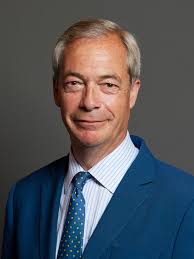The Influence of Nigel Farage on British Politics

Introduction
Nigel Farage has been a prominent figure in British politics, particularly known for his role in the Brexit movement and the founding of the UK Independence Party (UKIP). His influence has not only shaped the debate on the UK’s membership in the European Union but has also impacted broader political dynamics across the country. Understanding his role is crucial to grasping the current political landscape in the UK.
Farage’s Political Journey
Nigel Farage began his political career in the early 1990s, founding UKIP in 1993. The party focused primarily on the UK’s withdrawal from the EU, a stance that resonated with many voters frustrated with what they perceived as an overreach of European bureaucratic powers. Farage’s charismatic and often controversial style of campaigning brought significant media attention to UKIP, leading to a surge in support for the party, especially during the 2014 European elections where it won the highest number of votes in the UK.
The Brexit Campaign
Farage’s most pivotal moment came during the 2016 Brexit referendum, where he emerged as one of the key figures advocating for leaving the EU. His advocacy was instrumental in mobilising public opinion, using emotive messaging and direct appeals to national sovereignty and immigration concerns. The success of the Leave campaign resulted in the UK formally exiting the EU, a political shift that continues to hold profound implications for the country’s future.
Recent Developments
Post-Brexit, Farage has remained active in the political arena, advocating for a variety of causes, including free speech and criticism of both the Conservative and Labour parties for their handling of post-Brexit policies. Following the recent elections, including local council elections, UKIP has seen a decline in prominence, yet Farage has successfully maintained a platform through media channels and social media, appealing to a base that continues to share his views on national identity and immigration.
Conclusion
Nigel Farage’s influence on British politics cannot be understated. His role in the Brexit campaign has altered the trajectory of the UK, creating a new landscape of political discourse. Looking ahead, while his party may face challenges, the motivations and issues he has brought to the forefront will likely continue to resonate with segments of the electorate. As the country navigates its post-Brexit identity, Farage’s ongoing involvement in political discussions suggests that the debates around sovereignty and immigration will remain salient in the future.









